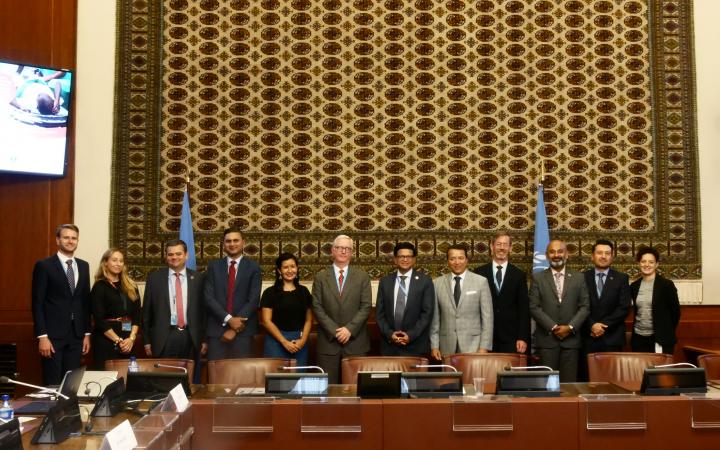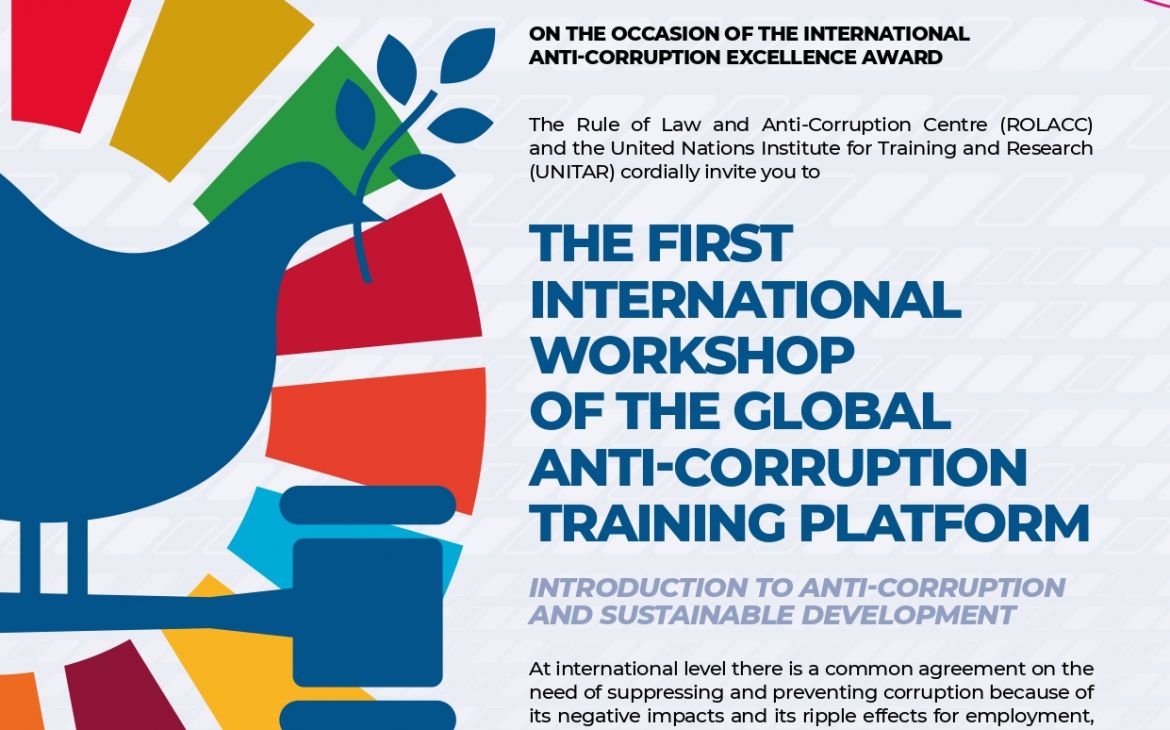UNITAR and Partners Launch New Mobile Application and Video on WHO Surgical Safety Checklist
UNITAR, the World Health Organization (WHO), the United Nations International Computing Center (UNICC), and the Harvard Medical School Program in Global Surgery and Social Change (PGSSC) recently launched a new mobile application and video on the WHO Surgical Safety Checklist. The app was designed to facilitate the Checklist’s use among healthcare professionals. Its dissemination is enhanced through a video that aims to raise awareness of the Checklist’s importance and added value. The Checklist was initially developed to decrease errors and adverse events, and increase teamwork and communication in surgery. It has shown significant reduction in both morbidity and mortality, therefore making it a successful tool to increase patient safety.
More than 5 billion people and more than 90% of the world’s poor lack access to basic surgical care. Approximately 30% of the world’s burden of disease is caused by conditions that can be treated by surgery or require the direct care of a surgeon. Most of this burden and need is found in low income countries. Until recently, surgical care has been largely left out of the mainstream discussions of global health despite playing an indispensable role in achieving the Sustainable Development Goals (SDGs) and Universal Health Coverage. In order to meet the SDGs, countries need to significantly increase access to safe and affordable surgery, particularly in the least developed countries.
The new tools developed by UNITAR, WHO, UNICC and PGSSC aim to support stakeholders in their efforts to make surgery safer. The mobile application can be downloaded for iOS and for Android .
Both tools were launched at a roundtable event that was held in Geneva as part of the first yearly World Patient Safety Day, on 17 September 2019. The event brought together attendees from all partner organizations, as well as prominent members of the healthcare world. In addition to launching the mobile application and video, the event further aimed to create a conclusive dialogue on how to globally implement tools to improve patient safety and surgical care.
Given the positive results of this partnership, UNITAR looks forward to future collaboration with WHO, UNICC and PGSSC. The Programme will continue to enhance the content and format of its training activities related to health and development, aimed at supporting health-stakeholders to systematically identify knowledge gaps and develop capacity to enhance the impact of existing health initiatives and programmes.
UNITAR launches new initiative on building capacity to support the fight against corruption
UNITAR recently launched a new capacity-building initiative on anti-corruption with the Rule of Law and Anti-Corruption Center (ROLACC). As the first outcome of this partnership, UNITAR and ROLACC will host a Training of Trainers (ToT) workshop on Introduction to Anti-Corruption and Sustainable Development from 9 to 11 December 2019 in Kigali, Rwanda.
The focus of this ToT Workshop will be on the issues surrounding corruption and its linkages with sustainable development, through exploring good practices and challenges. As a ToT Workshop, this event is designed to increase an expert’s knowledge level on the topic, while at the same time enhancing his/her capabilities to design and deliver effective training programs, in order to properly transmit this expertise. It will empower participants through coaching and practical exercises, which will maximize their learning. The workshop is also envisioned for those who are interested in becoming trainers, or in increasing their skills in designing, delivering and evaluating training programmes. The workshop will be opened to representatives of States and other relevant stakeholders working on anti-corruption related subjects.
This new initiative’s overall goal is to promote global information exchange and sharing of practical solutions on anti-corruption subjects and to increase knowledge of public-sector officials on current anti-corruption subjects. As a widespread issue that affects developed and developing countries alike, depriving developing countries of approximately $1.26 trillion a year and eroding the democratic foundations of institutions and their governments, corruption must be considered at the center of sustainable development strategies and debates. In this context, understanding how corruption operates and finding adequate strategies to prevent it, promote international cooperation on the matter, and bring justice to the respective cases under national and international law are prerequisites for progress along economic, political, and social spheres.
Thus, building capacity in anti-corruption is critical for achieving the 2030 Agenda Goals. More specifically, achieving progress on anti-corruption can advance Sustainable Development Goal 16 “to promote peaceful and inclusive societies for sustainable development, provide access to justice for all and build effective, accountable and inclusive institutions at all levels” and particularly target 16.5, aiming to “substantially reduce corruption and bribery in all their forms”
Key project outcomes will be consolidated on a newly created global learning platform, accessible under www.un-anticorruption-learn.org. The platform will be open to the general public and make readily available information relevant to anti-corruption capacity-building and aims to increase the scope of the initiative. UNITAR is looking forward to implementing this new strategic partnership with ROLACC, and to hosting the first joint ToT workshop on this important topic in Kigali.



